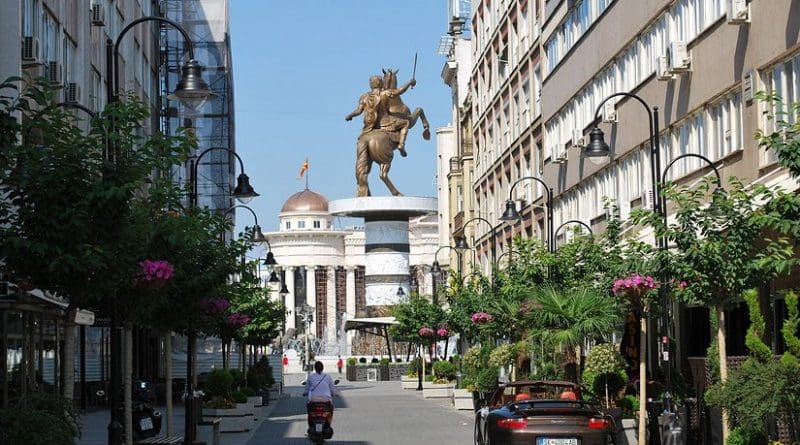Macedonia Files Terrorism Charges For Parliament Rampage
By Sinisa Jakov Marusic
The Macedonian prosecution charged 30 people with terrorism, including the former interior minister and various MPs, over last April’s violence in parliament which injured some 100 people.
The Public Prosecution filed terrorism charges against 30 people, including former interior minister and chief of the uniformed police force Mitko Cavkov, opposition right-wing VMRO DPMNE MPs, police employees and activists over the rampage in parliament on April 27 last year.
Prosecution spokesperson Elizabeta Nedanovska told a press conference in Skopje that charges of “terrorist endangerment of the constitutional order and security” have been filed against 28 people, and against two others for assisting the criminal activity.
“The accused, intending to endanger the constitutional order and safety of Macedonia and to prevent the election of the parliamentary chairman and speaker, caused an act of violence, thus putting in danger the lives of MPs, journalists, officials and employees in parliament and creating a feeling of insecurity, danger and fear among citizens,” Nedanovska said.
The attack on parliament in April last year happened amid high political tensions in the country as the former ruling VMRO DPMNE attempted to stop the Social Democrats from forming a government.
It began when VMRO DPMNE party supporters stormed the building only minutes after the new majority in parliament had elected Talat Xaferi as its speaker, paving the way for the election of the new Social Democrat-led government, which eventually took office in May.
The violent mob injured some 100 people including ten MPs from the new majority. The Social Democrats’ leader, current Prime Minister Zoran Zaev, was among those injured.
Some VMRO DPMNE MPs, including Krsto Mukoski, who is among those charged, were seen on parliament video footage opening the legislature’s main door and apparently giving instructions to the mob where to go.
The prosecution on Tuesday said that high-ranking police officials including Mitko Cavkov did not issue commands to dispatch more police units to parliament despite receiving constantly-updated information about the violence and the threat to people’s lives.
One of those charged received a telephone call at 2.30pm local time, before the violence started, to mobilise accomplices and start the process of storming the parliament building, the prosecution said.
Ten people in total were tasked with organising a larger group of masked people who were seen on many pieces of video footage from that day, it added.
The prosecution also charged four organisers of the protests by VMRO DPMNE supporters that were being staged each day in front of the parliament building at the time.
The four are accused of leading and inciting a group of people who stormed the parliament building together with the people in masks, the prosecution said.
The prosecution did not specify however whether or not it is investigating anyone for giving orders to stage the violence.
Police in November arrested more than 30 people in connection with the rampage, most of whom are now being charged.
The prosecution said however that it has suspended procedures for one previously detained VMRO DPMNE MP, Zaklina Stefkovska, due to a lack of evidence.
It also said it is temporarily stopping an investigation into the possible involvement of four additional suspects who are still at large. They will be investigated once police determine their whereabouts, it added.
Those accused of the terrorism charges face a minimum jail sentence of 10 years if convicted.

